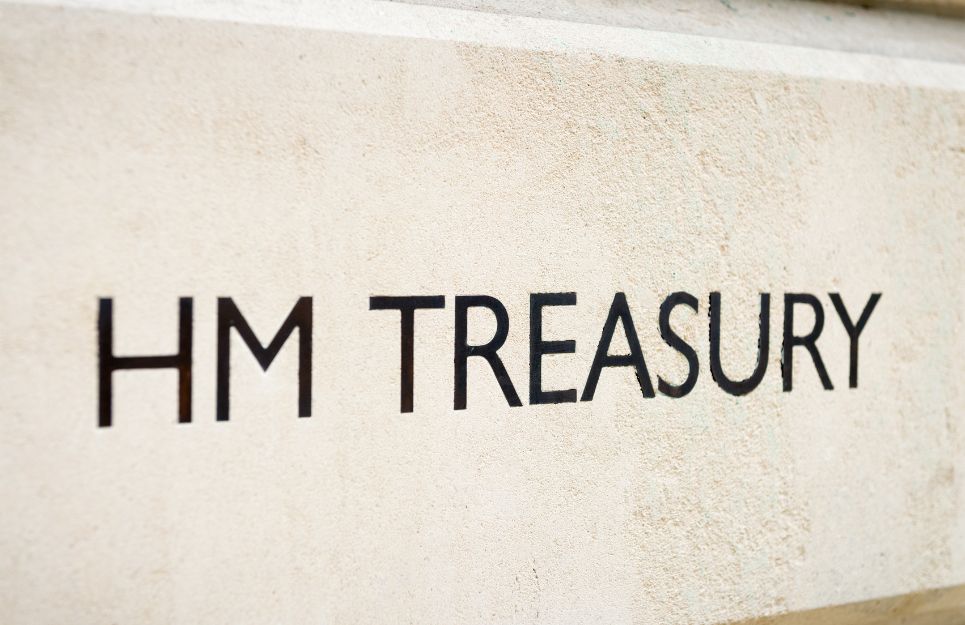 Charlie Wynne on our Policy and Public Affairs Team explores key takeaways for actuaries from the UK’s 2023 Spring Budget
Charlie Wynne on our Policy and Public Affairs Team explores key takeaways for actuaries from the UK’s 2023 Spring Budget
Are the promises of Prime Minister Rishi Sunak beginning to bear fruit? First came the need for economic correction. Sunak reiterated upon becoming Prime Minister and throughout the Conservative Party leadership campaign in 2022 that fiscal prudence had to come before conservative principles. This was a nod to former Chancellor Nigel Lawson’s economic philosophy during the early Thatcher years, where deficit reduction came before cuts to taxation. Since his appointment as Chancellor, Jeremy Hunt has followed Sunak’s – and Lawson’s – credo to the letter.
Yet on Spring Budget Day, with 10-year gilt rates falling, inflation peaking, and the projected recession avoided, Hunt invoked Lawson once more. Only this time, he referenced this government’s adherence to Lawson’s guiding hand as a permit for the Budget to act as a springboard for the next stage of Sunak’s plan for government.
The Budget represented a shift in focus away from policies of stability to ones that instead give priority to the “capital, people and ideas” that Sunak championed at his 2022 Mais Lecture.
It included measures for:
Yet ironically, such policies were announced by Hunt through the former Prime Minister Liz Truss’s signature emphasis for her ill-fated premiership: growth.
While the Budget was almost entirely pre-announced, the scrapping of the Lifetime Allowance (LTA) on pension savings delivered the most surprise. The abolition means people will now be allowed to put aside as much as they can in their private scheme without being taxed. There was previously a £1.07m threshold.
And there was the extra announcement of an increase in the annual allowance on pension savings from £40,000 to £60,000. This was more expected given the government’s drive to reduce the number of over-50s that are economically inactive yet capable of working. The increase was driven by Hunt’s own focus on the need to get experienced doctors to stay in the workforce, but is politically controversial.
On the LTA, the tax-free 25% will continue to apply to only the first £1.07m of pension savings. It thereby prevents an effective tax subsidy to those with well-established private pensions. But employer pension contributions escape National Insurance contributions and pensions pots have an exemption from inheritance tax. So the policy will, perhaps controversially, provide further substantial tax breaks to those with bigger pensions.
Ahead of the Budget, IFoA President Matt Saker called on the Chancellor to ‘go for green growth’. Hunt did not disappoint. The Chancellor freed up an additional £20bn for carbon capture, utilisation and storage. He also announced, subject to consultation, the designation of nuclear power as environmentally sustainable.
These net zero-friendly measures are overwhelmingly reassuring policy decisions. They show the government has not taken its eye off the ball where its ambition for the UK’s sustainability and scientific credentials are concerned. And they’re helped along by other announcements for economic innovation. These include the creation of an ‘AI sandbox’ and a £500m per year package of support for R&D intensive businesses.
But there was criticism reserved for the Chancellor by Conservative MPs on the government’s decision to press ahead with the planned rise in corporation tax. Headline corporation tax in the UK will rise from 19% to 25% from April 2023.
To placate members of his own party unhappy with the rise, Hunt has announced a new policy of full capital expensing over the next three years. This means that every pound that companies invest in IT equipment, plant, or machinery can be deducted in full and immediately in taxable profits. It amounts to almost 25p per every £1. Hunt also reiterated that despite the rise going ahead, the UK would still “have the lowest headline rate in the G7”. He also announced 12 new ‘investment zones’ to boost capital investment.
Yet with such palpable discontent within his party, the Chancellor may need to think bigger about how to deliver on his promises of lower taxation. And specifically, where businesses within this threshold are concerned. The announcement of a corporate taxation ‘roadmap’ (to a lower level) might be a start.
In all, the Chancellor delivered a safe Budget with few, if any, real surprises – so too avoiding any potential damaging upsets. After the ‘trauma’ of the September financial statement, this is probably wise. The shift in focus from ‘stability’ in November to ‘growth’ now in March has been orchestrated extremely carefully – moving the apples without moving the cart. The challenge ahead for Jeremy Hunt will be whether he will get the economic headroom needed in time to revitalise the ailing British economy.